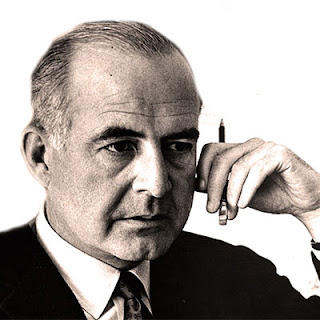It's all about the classical music composers and their works from the last 400 years and much more about music. Hier erfahren Sie alles über die klassischen Komponisten und ihre Meisterwerke der letzten vierhundert Jahre und vieles mehr über Klassische Musik.
Total Pageviews
Friday, March 3, 2023
Samuel Barber - his music and his life
Samuel Barber's Adagio for Strings is one of the most recognizable pieces of classical music in the world. It's become America's semi-official music for mourning, used at Franklin Delano Roosevelt's funeral and after JFK's assassination.
But somewhere along the way, it went from an anthem of sadness to one of joy.
The Barber Adagio has been recorded dozens, if not hundreds, of times. Three of those have been made by conductor Leonard Slatkin. "This piece starts just with a single, very long melodic line in the violins," Slatkin explains, "which then goes over to the violas and then goes over to the cellos. It reaches a very strong climax, followed by what seems like an interminable silence. And then the music reappears for one last time and we hear, at the very end, two chords that might as well be saying 'Amen.' "
The Adagio for Strings arrived at the right moment, when America was still hurting from the Great Depression and Europe was sliding into war. The piece had its debut on Nov. 5, 1938, on an NBC radio broadcast conducted by Arturo Toscanini, who had already seen many European Jewish colleagues murdered.
Samuel Barber, (born March 9, 1910, West Chester, Pennsylvania, U.S.—died January 23, 1981, New York, New York), American composer who is considered one of the most expressive representatives of the lyric and Romantic trends in 20th-century classical music.
Barber studied the piano from an early age and soon began to compose. In 1924 he entered the Curtis Institute of Music in Philadelphia, where, in addition to piano and composition, he studied singing and conducting. After graduation in 1934, Barber devoted himself entirely to composition. His style was distinctive and modern but not experimental. He established his reputation with his overture to The School for Scandal (1933), based on Richard Sheridan’s comedy by that name, and with Music for a Scene from Shelley (1935), inspired by the poet Percy Bysshe Shelley’s Prometheus Unbound.
Although many of Barber’s works make literary allusions, his music is not programmatic in the strict sense. Significant in this respect are the three Essays for Orchestra (1938, 1942, and 1978), which are intended as musical counterparts of the literary form. Structural considerations govern Barber’s instrumental writing; there is great astringency in harmony, but the basic tonality remains secure; the rhythmic lines are very strong, without loss of coherence.
